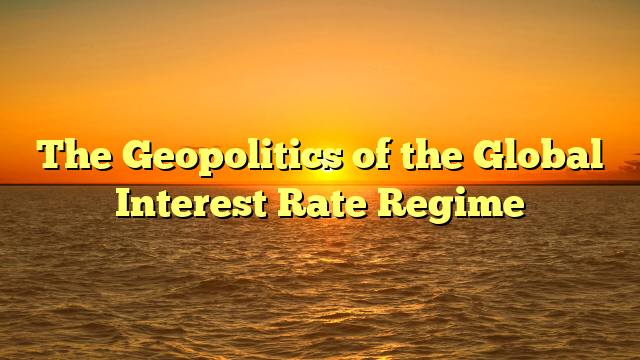The Fed is becoming the central bank of world political leverage.
For four decades global capital markets were structurally designed around the assumption that the U.S. interest rate regime is the anchor of global liquidity Pokemon787 conditions. The Federal Reserve never asked to be the sovereign allocator of pain distribution across emerging markets — but that is what it became. And now as the interest rate supercycle prolongs into a new higher-for-longer doctrine, the political economy of rate policy has transformed into an instrument of geopolitical power — not just macro stabilization.
When the Fed moves 25 basis points — global sovereigns do not adjust portfolios. They adjust politics. Indonesia must rethink subsidy timing. Brazil must rethink fiscal ceiling messaging. India must rethink foreign inflow corridor risk. Egypt must restructure debt maturity ladders. Turkey must defend currency credibility. Argentina must choose between domestic political pain or market confrontation.
That is how central one institution became.
This is not a neutral market equilibrium. This is asymmetric dependency baked into global architecture. The U.S. rate cycle now structurally determines which emerging markets have growth windows and which ones structurally fail before they can even test productive capacity scaling. Private capital follows Fed signaling, not IMF signaling, not G20 consensus, not BRICS rhetoric.
Europe cannot counter this. China cannot counter this yet because RMB is not trust-backed as a reserve safety asset and capital account remains strategically controlled.
The deeper conflict ahead is not about rates being high or low. The conflict is that the U.S. now realizes interest rate regime architecture itself is power. And once a country discovers a non-military, non-tariff, non-treaty power instrument with this magnitude — it will not surrender it easily. The Fed does not need to coordinate coercion. Market logic enforces coercion automatically.
The next decade is not simply higher or lower rates.
The next decade is the institutionalization of interest rate politics as a sovereign influence asset.


